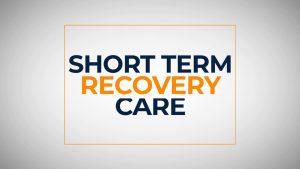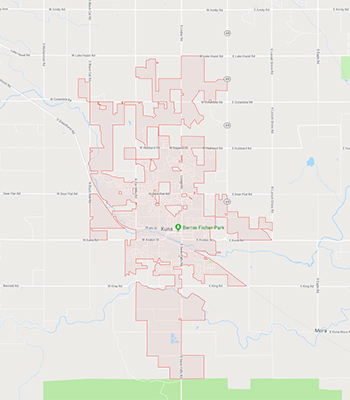Other Insurance
 Good dental health is a very important part of your overall health and well-being. There are several good dental plans available that provide routine preventive care as well as coverage for more major dental needs.
Good dental health is a very important part of your overall health and well-being. There are several good dental plans available that provide routine preventive care as well as coverage for more major dental needs.
 Could you use some help with the cost of your eye appointments, glasses, and contacts? Plans with copays and an allowance for glasses and/or contacts are available. Plans with no waiting periods can really help with your vision expenses right away.
Could you use some help with the cost of your eye appointments, glasses, and contacts? Plans with copays and an allowance for glasses and/or contacts are available. Plans with no waiting periods can really help with your vision expenses right away.
 Cancer insurance provides you with funds that can be used flexibly, including to help cover both medical and nonmedical expenses that occur during your journey to recovery. These funds can also be used to pay for household expenses that may be more difficult to manage while you’re sick.
Cancer insurance provides you with funds that can be used flexibly, including to help cover both medical and nonmedical expenses that occur during your journey to recovery. These funds can also be used to pay for household expenses that may be more difficult to manage while you’re sick.
 Accident insurance is a type of insurance where the policy holder is paid directly in the event of an accident resulting in injury of the insured. The insured can spend the benefit payment however they choose, such as toward health insurance deductible or cash in your pocket. Accident insurance is complementary to, not a replacement for, health insurance.
Accident insurance is a type of insurance where the policy holder is paid directly in the event of an accident resulting in injury of the insured. The insured can spend the benefit payment however they choose, such as toward health insurance deductible or cash in your pocket. Accident insurance is complementary to, not a replacement for, health insurance.
Are you accident prone, active, or have a risky job. If you are a little more concerned about accidents, you can pick up something to help meet deductibles and out of pocket costs of health insurance.
 Critical illness insurance is an insurance product in which the insurer is contracted to typically make a lump sum cash payment if the policyholder is diagnosed with one of the specific illnesses on a predetermined list as part of an insurance policy
Critical illness insurance is an insurance product in which the insurer is contracted to typically make a lump sum cash payment if the policyholder is diagnosed with one of the specific illnesses on a predetermined list as part of an insurance policy
Some Covered Critical Illnesses can be:
- Heart Attack
- Stroke
- Cancer
- Coronary Bypass Surgery
- Alzheimer’s disease
- Organ Transplant
 Disability Insurance or disability income insurance is a form of insurance that insures the beneficiary’s earned income against the risk that a disability creates a barrier for completion of core work functions. Disability insurance can give you peace of mind that if you can’t work due to a disability you will have an income replacement. You will still be able pay your bills and care for your family.
Disability Insurance or disability income insurance is a form of insurance that insures the beneficiary’s earned income against the risk that a disability creates a barrier for completion of core work functions. Disability insurance can give you peace of mind that if you can’t work due to a disability you will have an income replacement. You will still be able pay your bills and care for your family.
 Hospital indemnity insurance (also known as hospital confinement insurance or simply hospital insurance) is supplemental medical insurance coverage that pays benefits if you are hospitalized. While health insurance pays for medical services after copays, co-insurance, and deductibles are met, hospital indemnity insurance pays you if you are hospitalized, regardless of any other coverage you may have. Hospital Indemnity insurance is not intended to replace your health insurance.
Hospital indemnity insurance (also known as hospital confinement insurance or simply hospital insurance) is supplemental medical insurance coverage that pays benefits if you are hospitalized. While health insurance pays for medical services after copays, co-insurance, and deductibles are met, hospital indemnity insurance pays you if you are hospitalized, regardless of any other coverage you may have. Hospital Indemnity insurance is not intended to replace your health insurance.
Common examples of the type of benefits these plans may offer are a fixed benefit for admission to the hospital, a fixed benefit for an overnight stay, and a fixed benefit for each overnight stay in an intensive care unit. It won’t pay medical bills from your doctors or hospitals, nor will it pay for your medications from the pharmacy. You may choose to use the benefit payments you receive from a hospital indemnity policy to pay for these expenses, but the benefit payments are meant to help you fill gaps for things not paid by your medical insurance, such as deductibles and coinsurances.
 It might be hard to imagine now, but chances are you’ll need some help taking care of yourself later in life on a long term basis. The big question is: How will you pay for it? Long-term care refers to a host of services that aren’t covered by regular health insurance. This includes assistance with routine daily activities, like bathing, dressing, or getting in and out of bed.
It might be hard to imagine now, but chances are you’ll need some help taking care of yourself later in life on a long term basis. The big question is: How will you pay for it? Long-term care refers to a host of services that aren’t covered by regular health insurance. This includes assistance with routine daily activities, like bathing, dressing, or getting in and out of bed.
A long-term care insurance policy helps cover the costs of that care when you have a chronic medical condition, a disability or a disorder such as Alzheimer’s disease. Most policies will reimburse you for care given in a variety of places, such as:
- Your home.
- A nursing home.
- An assisted living facility.
- An adult day care center.
Considering long-term care costs is an important part of any long-range financial plan, especially in your 50s and beyond. Waiting until you need care to buy coverage isn’t an option. You won’t qualify for long-term care insurance if you already have a debilitating condition.
Nearly 70% of people 65 or older will need long-term care services or support, according to 2020 data from the Administration for Community Living, part of the U.S. Department of Health and Human Services. Women typically need care for an average of 3.7 years, while men require it for 2.2 years.
Regular health insurance doesn’t cover long-term care. And Medicare won’t come to the rescue, either; it covers short nursing home stays or limited amounts of home health care when you require skilled nursing or rehab only. It doesn’t pay for custodial care, which includes supervision and help with day-to-day tasks.
The activities of daily living are:
- Bathing.
- Caring for incontinence.
- Dressing.
- Eating.
- Toileting (getting on or off the toilet).
- Transferring (getting in or out of a bed or a chair).
 Like long-term care insurance, short-term policies typically cover home care, assisted living and nursing homes when you can’t take care of yourself. But instead of paying for years of care, short-term care insurance, also known as recovery care, typically provides benefits for 12 months or less.
Like long-term care insurance, short-term policies typically cover home care, assisted living and nursing homes when you can’t take care of yourself. But instead of paying for years of care, short-term care insurance, also known as recovery care, typically provides benefits for 12 months or less.

